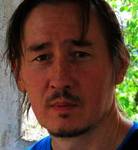Stories around migration - interviewed and written by Birgit Stegbauer (more interviewpartners)
"A story in stages" Nana and Eugen Kender
Following the collapse of communism the native Romanians initially contributed to establishing democracy in Romania. In 1994 both IT specialists were able to immigrate to Canada on account of the Canadian immigration policy for skilled workers. Years later they returned to Europe as Canadian citizens. Regarding the way Austria deals with the issue of urgently needed skilled personnel, they see much room for adaption. Our immigration is a story in stages. We come from Romania, Temeswar/Timişoara, Nana from a Romanian family, Eugen from an ethnic Hungarian-German family. We grew up during the communist regime of Nicolae Ceauşescu and from early on our families made us aware of human rights issues. The worst about communism was the bureaucratic mentality that did not perceive people as individuals, that did not respect human dignity. During the Revolution of 1989 we were in the street, animated by the hope of partaking in building a democracy in our home country. But there was still terrible poverty in Romania, the infrastructure, for example the medical care, was inconceivable; the living conditions were inhumane, the political changes that people had given their lives for did not happen - the political jobs were only shuffled around among the former party bosses and political police officers.
Therefore, about a year later, we submitted an immigration application to Germany (because Eugen is of German descent); another year later, when we were expecting our first child and Germany was taking too long to process our application due to the great wave of immigration from Eastern Europe, we also applied for immigration into Canada. Our first child was born in Romania. We eventually received a positive answer from Canada and emigrated in 1994. Canada had and still has special quotas for skilled workers and IT specialists were at that time in high demand, especially those with work experience, as Eugen. We lived in Vancouver, the landscape of the region was breathtaking, a dream come true. We were doing fine, Nana continued her studies and we had our second child. What we admired most about Canada was the respectful way people interacted with each other, something one learns already as a child there. After three years we applied for and received the Canadian citizenship. But, in time, the foggy, rainy weather (excepting the summer) affected Eugen in particular. When in 1999 Nana was offered a job with Infineon (formerly Siemens) in Carinthia, we regarded this as a compromise solution, an opportunity we wanted to try out for a few years; now we've been living in Villach for over a decade. A clarification is still needed here: as Romanians we wouldn't have wanted to emigrate to Europe because with the Romanian citizenship one is something like a 'subhuman' in Europe, with the Canadian citizenship on the other hand one is sort of 'superhuman'. Although of course in conversations where our provenance comes up we still feel we're being regarded as Romanians, we could have ten Canadian passports for all that matters!Infineon helped us relocate initially by taking over all the required formalities and bureaucratic procedures; the company also helped us look for an apartment. Besides being practical, this also helped us get over the initial culture shock. We're very grateful for this and have only admiration for the company in this respect. We became aware of the obstacles companies have to overcome with the 'key employee' system (when they need to hire foreign work force) when Eugen was looking for work: the company has to prove that by employing a foreigner they do not take away the job from any native; the company has to embark on a long wait (and support additional costs) until the authorities grant the needed work permit. We'd also like to mention one anomaly regarding the residence permit: when our youngest child was born in, we all had unlimited residence permits - except the new baby, for whom we had to apply for a residence permit each year for a period of five years. One would presume that the residence permit of a family would also extend to a new baby. Anything else is either inhuman or scarcely comprehensible/ justifiable as a simple formality, since it involves considerable effort and expenses.On the other hand we had an exceptionally positive experience with the Austrian authorities when we took in our care a severely handicapped baby from Romania and were able to receive a residence permit for the baby, on humanitarian grounds. Before the permit was granted, we had to go through many official channels, write lots of letters and undergo a house visit concerning our suitability as foster parents. Once the necessary formalities were fulfilled though, all medical expenses for the baby were covered, and that was no small thing as the medical procedures were costly and followed by long-term therapies. This has helped the boy, who now lives with his family in Canada, to now lead at least a partly normal life. The initial and most important aid was granted to mother and child in Austria. In our opinion the Austrian immigration laws need to be urgently adapted. In the past, the concept was that Austria should be able to protect itself from undesired immigrants. Signals from economy however have followed a trend for many years, indicating that due to developments in technology and economy, Austria can only benefit from immigrant skilled manpower ('key work force'), if not to say that Austrian economy depends on it.Over the years we have noticed some really positive changes in certain attitudes towards foreigners, for example that applicants for the residence permit are now being treated more sensibly ever since the residence-related tasks were transferred from the 'aliens police' to the municipal authorities. Another example is that more information and documents are available in a number of different languages, for example in hospitals. We perceive a lot of potential also in the education area; an education focusing on openness towards other cultures should be introduced already in kindergarten in order to counteract prejudices. Just as you should respect a culture that you embrace (often because you don't have any other choice!), your own culture should also be respected by others. Naturally you shouldn't mind if your neighbours speak another language in their own garden.Even though we really enjoy and love the nature and the climate, Austria has not entirely become our homeland yet. The reason for this is the local culturalism: quite recently we had two experiences, in unrelated areas, where we thought it would be fulfilling to do some work that required social commitment. On both occasions we had to go through a painful process to understand that here the culture is different: you can't refer directly to problems, and instead of searching for a solution together, everything is decided in the back room; it almost seems like the wish to solve a problem disappears in the face of a huge, and for us incomprehensible, fear of change. The reason why we do not want to give up our Canadian citizenship is also of a sentimental nature: we remember the life in Romania like a life sentence in a prison - we only really started to live in Canada.
Übersetzung: Liz Finney, Nana und Eugen Kender


